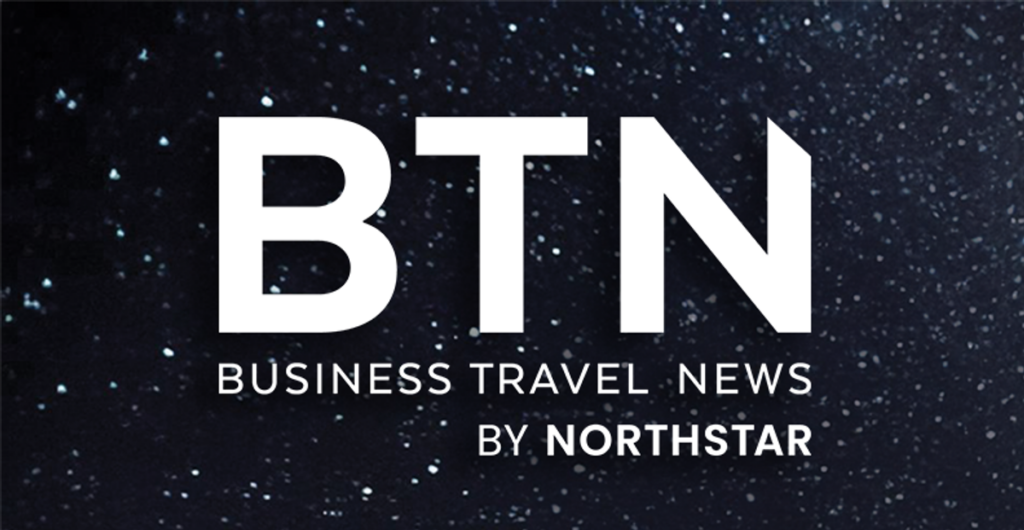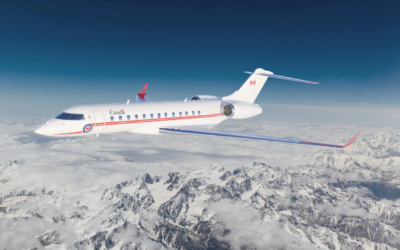
Two years after a U.S. federal judge ordered the dismantling of its alliance with American Airlines, JetBlue is back with a new partnership, this time with United Airlines. But while the new Blue Sky deal seems more likely to pass muster with regulators, its loyalty-focused structure could limit its significance for corporate programs to offering additional miles and points benefits to business travelers.
Still, with further details of the partnership to come, analysts suggested the deal for corporates could offer broader hub access in the Northeast for United customers and an overall wider network, including international routes, for JetBlue customers, and few other potential perks.
The partnership, announced in late May, includes an interline agreement along with reciprocal loyalty benefits. Customers will be able to earn and burn points on each other’s flights, and be able to book those flights on each other’s websites and apps.
In addition, as part of the deal, United will gain access to JetBlue slots at John F. Kennedy International Airport for up to seven daily round-trip flights, and JetBlue will receive options for flights at Newark Liberty International Airport.
“From United’s perspective, it is very much JFK that [CEO] Scott [Kirby] has been wanting for quite some time,” Raymond James senior research analyst Savi Syth told BTN. “He hasn’t been shy about being straightforward about how corporate passengers can fly into New York at JFK.”
United pulled out of JFK in October 2022 after it warned it would do so if it wasn’t allotted more slots there by the U.S. Federal Aviation Administration.
“If pushed, United might admit that the decision to leave JFK a few years ago wasn’t their best move,” GoldSpring Consulting partner Neil Hammond said in an email. “The deal kicks off with reciprocal loyalty benefits, cross-channel selling, and more importantly, it gives JetBlue a partner with a strong international network and a proven history of stable relationships. In return, it gives United slots back at JFK. Sounds like a win all around.”
United has a huge corporate sales team, and their network really gives them power in negotiations that JetBlue could never get.”
Raymond James’ Savi Syth
It indeed gives JetBlue scale, with access to United’s network, “while allowing them to focus on what they are strong in, which is leisure and [visiting friends and relatives] travel,” Syth said. “Now [JetBlue customers] can use United when they need to fly to places that are more corporate or smaller that doesn’t work for JetBlue.”
Syth added that “United has a huge corporate sales team, and their network really gives them power in negotiations that JetBlue could never get,” she said. “Especially with JetBlue refocusing on leisure and VFR, they don’t punch at that level. … If they can leverage United’s strengths, it will be positive for JetBlue, especially in New York.”
The carriers do not have, nor have they yet pursued, an alliance or venture with immunity from the U.S. antitrust laws that prohibit them from conducting joint pricing initiatives or negotiating with corporate customers. Beyond that, it’s still unclear to what extent the carriers will partner on the segment. United in an email reiterated that the carriers would continue to manage their commercial relationships independently, and that “the timeline is still being determined” as to if and when they would extend the terms of their corporate programs to the flights operated by the other airline. “More details will be provided as soon as they’re available,” according to United.
JetBlue did not immediately respond to a request for comment.
United also shared that all of its flights will be eligible for accrual, redemption and benefits, while a few of JetBlue’s routes will be excluded. But “most JetBlue flights, including transatlantic flights, will be eligible for accrual, redemption and benefits,” wrote United. “We’ll have more details as we get closer to the program rollout.”
KesselRun VP of program management Krissy Herman noted that keeping track of any flights not included in the partnership would be critical. “If travelers are expecting all routes to fall under this agreement, then all of a sudden their bags don’t transfer or the check-in process gets clunky, there will be traveler frustration,” she said
As for those JFK slots, United plans to use them to “serve San Francisco International Airport, which will connect New York City business travelers to the U.S. tech hub as well as provide connectivity to our leading trans-Pacific network,” according to the carrier. “These flights out of JFK Terminal 6 are planned to begin as early as 2027, subject to change and regulatory review.”
Execution Needs to Be ‘Seamless’
Most sources agreed that the deal looks to be a positive for both airlines, but there are a few details to keep an eye on.
“Execution is going to be key in all of this. … It has to be seamless,” said travel management consultant Colleen Kearney, a former travel manager with companies including RTX, United Technologies Corp. and Procter & Gamble. “Loyalty is really driving a lot of things right now, and we know it drives behaviors of corporate travelers. We all struggle with it, because people know how to manipulate the booking tools and get the airline they want.”
Kearney added that the carriers should look to equalize, at least to some extent, the benefits and services they offer to frequent flyers. “The product is different,” she said of the carriers. “They don’t have the same fare classes, there aren’t the same cabins, so I think that will be a little bit of a challenge with travelers.”
When asked about this, United provided a chart that details the benefits the different loyalty tier levels will receive on each carrier, including priority check-in, security, boarding, checked baggage, bag handling, preferred seats, extra legroom seats and same-day changes and standby options.
As for accessing the benefits and linked accounts, United wrote that customers can log into their loyalty accounts when purchasing tickets “to have their frequent flyer number automatically stored within their reservation. They may also manually enter their MileagePlus or TrueBlue frequent flyer number into their booking when purchasing or after the purchase has been completed to capture miles/points earned.”
Another benefit Kearney sees concerns disruption management. “There’s going to be more choices potentially, and service recovery is really important in today’s world when there is so much disruption, and it’s kind of become the norm,” she said.
The deal also has United joining Paisly, JetBlue’s platform for selling non-air options which until recently was known as JetBlue Travel Products. Paisly is evolving “from an internal travel platform into a full-service, tech-enabled managed travel services company,” according to JetBlue.
Kearney said that while Paisly is targeted more toward leisure travel, “in smaller programs, it might be a benefit, because if they don’t have a managed hotel program or car program, that might be an access point where they’re going to be able to save money, but on a smaller scale.”
Antitrust Protection?
Forming an interline agreement focused on loyalty benefits and sharing flights on booking platforms without a codeshare deal might protect the carriers from any antitrust questions the U.S. Department of Justice could have and save the partnership from the same fate as the Northeast Alliance.
“Clearly JetBlue has been looking for a partner in recent years,” Hammond said. “We’ve seen the Northeast Alliance with American terminated by the DOJ, the attempted acquisition of Spirit Airlines blocked, and the end of its partnership with Emirates, which was terminated in 2022. … Are the conditions that prompted the DOJ to terminate the NEA present in this deal and/or will this administration’s DOJ take a different approach?”
Hammond also asked, “what is the endgame for the relationship? Star Alliance membership for JetBlue, codesharing, joint corporate dealing, antitrust immunity? Or will we see a merger? Time will tell.”
United noted that the carriers “will not coordinate schedules or engage in a revenue-sharing arrangement,” which were DOJ concerns for the Northeast Alliance.
As for future plans, United is “focused on this interline and loyalty collaboration and bringing our customers more options and convenience when it comes to traveling when, how and where they want, as well as how they earn loyalty rewards through reciprocal loyalty program benefits,” according to the carrier. “We believe this interline agreement is the right level of integration between our airlines.”
Syth’s only concern about the deal was that “there are two airlines in New York that are really strong—Delta and United—and this just strengthens one of the two. It definitely helps JetBlue, but in the JetBlue-American scenario, you were actually providing a third competitor into the New York market, and that would have been positive for corporate and leisure passengers. This is just making one of the two strong players in the market stronger. It helps JetBlue and strengthens a smaller player that is somewhat disruptive. But for corporate passengers, JetBlue will never be disruptive in New York.”
RELATED: JetBlue, United Partner, Link Loyalty Programs
Recent Posts
- Wisk Aero completes first flight of gen. 6 autonomous eVTOL in California
- Douglas DC-3 90th Anniversary Broadcast Series Brings Global Community Together to Celebrate a Flying Legend
- Bombardier to send 6 Global 6500 to Canadian Air Force
- Daher Kodiak 900 aircraft receives Brazilian airworthiness certification
- Jim Richmond Backcountry Aviation Foundation announces Mustang flight as raffle prize







Recent Comments